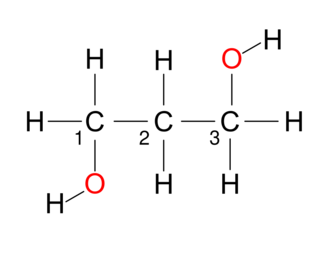An epigenome consists of a record of the chemical changes to the DNA and histone proteins of an organism; these changes can be passed down to an organism's offspring via transgenerational stranded epigenetic inheritance. Changes to the epigenome can result in changes to the structure of chromatin and changes to the function of the genome.[1]
Epigenome definition is - the complement of chemical compounds that modify the expression and function of the genome. How to use epigenome in a sentence.
The epigenome is involved in regulating gene expression, development, tissue differentiation, and suppression of transposable elements. Unlike the underlying genome, which remains largely static within an individual, the epigenome can be dynamically altered by environmental conditions.
- APOEG: Patient Preparation: A previous bone marrow transplant from an allogenic donor will interfere with testing. Call 800-533-1710 for instructions for testing patients who have received a bone marrow transplant. Specimen Type: Whole blood Container/Tube: Preferred: Lavender top (EDTA) or yellow top (ACD) Acceptable: Any anticoagulant Specimen Volume: 3 mL Collection Instructions: 1.
- Python Imaging Library 1.1.7 for Python 2.7 (Windows only) Additional downloads may be found here. Python Imaging Library 1.1.6 Source Kit (all platforms) (440k TAR GZ) (December 3, 2006) Python Imaging Library 1.1.6 for Python 2.2 (Windows only) Python Imaging Library 1.1.6 for Python 2.3 (Windows only).
Cancer[edit]
Epigenetics is a currently active topic in cancer research. Human tumors undergo a major disruption of DNA methylation and histone modification patterns. The aberrant epigenetic landscape of the cancer cell is characterized by a global genomic hypomethylation, CpG island promoter hypermethylation of tumor suppressor genes, an altered histone code for critical genes and a global loss of monoacetylated and trimethylated histone H4. Trim enabler pro 4 1 2 download free.
Epigenome research projects[edit]
As a prelude to a potential Human Epigenome Project, the Human Epigenome Pilot Project aims to identify and catalogue Methylation Variable Positions (MVPs) in the human genome.[2] Advances in sequencing technology now allow for assaying genome-wide epigenomic states by multiple molecular methodologies.[3] Micro- and nanoscale devices have been constructed or proposed to investigate the epigenome.[4]
An international effort to assay reference epigenomes commenced in 2010 in the form of the International Human Epigenome Consortium (IHEC).[5][6][7][8] IHEC members aim to generate at least 1,000 reference (baseline) human epigenomes from different types of normal and disease-related human cell types.[9][10][11]
Roadmap epigenomics project[edit]
One goal of the NIH Roadmap Epigenomics Project is to generate human reference epigenomes from normal, healthy individuals across a large variety of cell lines, primary cells and primary tissues. Data produced by the project, which can be browsed and downloaded from the Human Epigenome Atlas, fall into five types that assay different aspects of the epigenome and outcomes of epigenomic states (such as gene expression):
- Histone Modifications – Chromatin Immunoprecipitation Sequencing (ChIP-Seq) identifies genome wide patterns of histone modifications using antibodies against the modifications.[12]
- DNA Methylation – Whole Genome Bisulfite-Seq, Reduced Representation Bisulfite-Seq (RRBS), Methylated DNA Immunoprecipitation Sequencing (MeDIP-Seq), and Methylation-sensitive Restriction Enzyme Sequencing (MRE-Seq) identify DNA methylation across portions of the genome at varying levels of resolution down to basepair level.[13]
- Chromatin Accessibility – DNase I hypersensitive sites Sequencing (DNase-Seq) uses the DNase I enzyme to find open or accessible regions in the genome.
- Gene Expression – RNA-Seq and expression arrays identify expression levels or protein coding genes.
- Small RNA Expression – smRNA-Seq identifies expression of small noncoding RNA, primarily miRNAs.
Reference epigenomes for healthy individuals will enable the second goal of the Roadmap Epigenomics Project, which is to examine epigenomic differences that occur in disease states such as Alzheimer's disease.
See also[edit]
References[edit]
- ^Bernstein, Bradley E.; Meissner, Alexander; Lander,Eric S. (February 2007). 'The Mammalian Epigenome'. Cell. 128 (4): 669–681. doi:10.1016/j.cell.2007.01.033. PMID17320505.
- ^'Human Epigenome Project'. Archived from the original on 2011-07-16. Retrieved 2011-06-29.
- ^Milosavljevic, Aleksandar (June 2011). 'Emerging patterns of epigenomic variation'. Trends in Genetics. 27 (6): 242–250. doi:10.1016/j.tig.2011.03.001. PMC3104125. PMID21507501.
- ^Aguilar, Carlos; Craighead, Harold (October 4, 2013). 'Micro- and nanoscale devices for the investigation of epigenetics and chromatin dynamics'. Nature Nanotechnology. 8 (10): 709–718. Bibcode:2013NatNa..8.709A. doi:10.1038/nnano.2013.195. PMC4072028. PMID24091454.
- ^'Time for the epigenome'. Nature. 463 (7281): 587. Feb 2010. Bibcode:2010Natur.463Q.587. doi:10.1038/463587a. PMID20130607.
- ^Abbott, A (2010). 'Project set to map marks on genome'. Nature. 463 (7281): 596–597. doi:10.1038/463596b. PMID20162836.
- ^Bae, JB (2013). 'Perspectives of international human epigenome consortium'. Genomics Inform. 11 (1): 7–14. doi:10.5808/GI.2013.11.1.7. PMC3630389. PMID23613677.
- ^'BioNews - Human Epigenome project launched'.
- ^'France: Human epigenome consortium takes first steps'Archived 2015-07-08 at the Wayback Machine. 5 March 2010.
- ^Eurice GmbH. 'About IHEC'.
- ^Kanai, Yae; Arai, Eri (2014). 'Multilayer-omics analyses of human cancers: Exploration of biomarkers and drug targets based on the activities of the International Human Epigenome Consortium'. Frontiers in Genetics. 5: 24. doi:10.3389/fgene.2014.00024. PMC3924033. PMID24592273.
- ^Zhu, J.; et al. (2013). 'Genome-wide chromatin state transitions associated with developmental and environmental cues'. Cell. 152 (3): 642–654. doi:10.1016/j.cell.2012.12.033. PMC3563935. PMID23333102.
- ^Harris, R Alan; Wang, Ting; Coarfa, Cristian; Nagarajan, Raman P; Hong, Chibo; Downey, Sara L; et al. (September 19, 2010). 'Comparison of sequencing-based methods to profile DNA methylation and identification of monoallelic epigenetic modifications'. Nature Biotechnology. 28 (10): 1097–1105. doi:10.1038/nbt.1682. PMC2955169. PMID20852635.
External links[edit]
Gene2Genome is an independent reference laboratory providing Cytogenetic and Molecular Genetic testing services to physicians, medical groups and healthcare facilities. We are a dedicated team of professionals providing reproductive genetic testing and counseling services in Southeast US. We are committed to delivering outstanding quality of service for our clients.
Our team is committed to our mission of delivering prompt, precise and personalized service. Genetic testing with rapid turnaround time (TAT) in a cost effective manner is one of Gene2Genome's key differentiators due to the critical and time-sensitive nature of life-impacting healthcare decisions.
Our laboratory is accredited by College of American Pathologists (CAP) and Clinical Laboratory Improvement Amendments (CLIA). Please contact us with any questions. We look forward to collaborating with providers to achieve the best care for your patients.
Conveniently located in the Deerwood Business Park off Baymeadows Road and I-95.
We provide complimentary personalized courier service for specimen pickup within a 125 mile radius of our location.
Appgenome 1 3 2 =
Gene2Genome
8659 Baypine Road
Suite 307
Jacksonville, FL 32256
Phone: (904) 322-7711
Fax: (904) 425-1515
Email: support@gene2genome.com
Resources for Patients
Appgenome 1 3 2 0
Genetic resources to empower wellness
All About Genes
Excellent resource about genes and its condition. Written and peer reviewed by experts.
Clinical Trial Database
Resources for researchers, patients and families about funded clinical studies worldwide.
Genetic Home References
Information about impact of genetic variation in human health.

Health and Wellness
Informational resources for children's health and environment.
Reproductive
• Preimplantation genetic screening
• Chromosome analysis from peripheral blood
• Chromosomal analysis from prenatal samples (amnio, CVS & POC)
• Microarray from postnatal & prenatal samples (blood, amnio & POC)
Pediatric
• Chromosome analysis from peripheral blood
Appgenome 1 3 2 X 2
• Microarray from peripheral blood

Health and Wellness
Informational resources for children's health and environment.
Reproductive
• Preimplantation genetic screening
• Chromosome analysis from peripheral blood
• Chromosomal analysis from prenatal samples (amnio, CVS & POC)
• Microarray from postnatal & prenatal samples (blood, amnio & POC)
Pediatric
• Chromosome analysis from peripheral blood
Appgenome 1 3 2 X 2
• Microarray from peripheral blood
• Whole exome sequencing (coming soon)
Oncology
Appgenome 1 3 2 Player Games
• Chromosome analysis from peripheral blood & bone marrow
Contact Us
Please reach us via email or phone or by using the form below. We will promptly respond within 1-2 business days.
Gene2Genome
8659 Baypine Road, Suite 307
Jacksonville, FL 32256
Phone: (904) 322-7711
Fax: (904) 425-1515
Email: support@gene2genome.com
